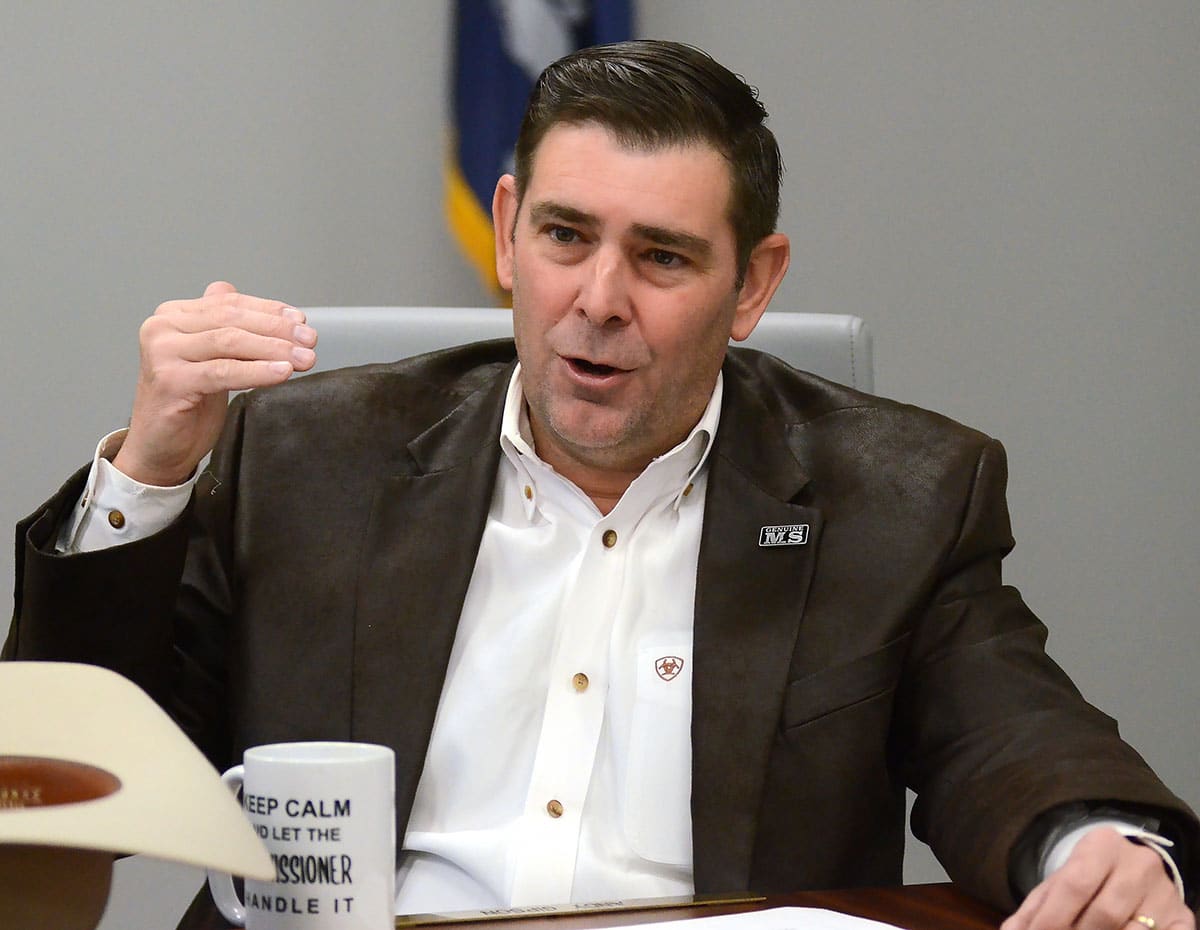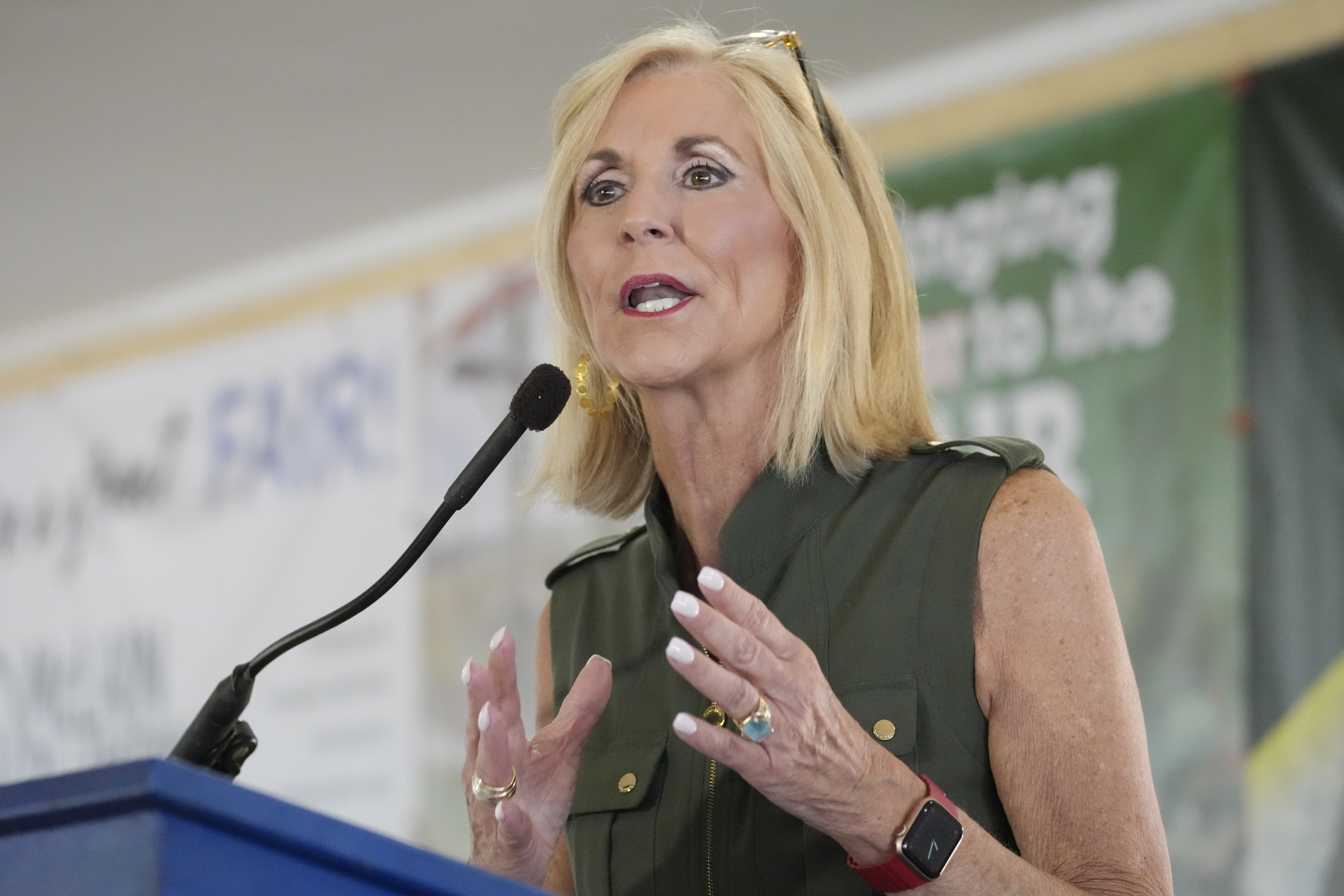Mississippi Today
Mississippi Ag chief, lawmakers targeting foreign farm ownership

Mississippi officials are calling attention to the growing amount of foreign-owned farmland in the state, although it makes up less than three percent of the state’s agriculture and forest land.
The amount of Mississippi farmland owned by foreign, nonresidents grew by over 100,000 acres from 2011 to 2021, according to a November report, totaling over 700,000 acres now. The report was written by a recently formed committee of Agriculture and Commerce Commissioner Andy Gipson; Attorney General Lynn Fitch; Rep. Angela Cockerham, I-Magnolia; Sen. Brice Wiggins, R-Pascagoula; Rep. Bill Pigott, R-Tylertown; Sen. Chuck Younger, R-Columbus; and three private sector appointees.
The report calls for the Legislature to create an enforcement mechanism for already-existing rules on land ownership.

According to state law, foreign, nonresident land ownership is prohibited except for: taking a lien on a property to secure a debt; inheriting property, if the new owner is from Lebanon or Syria (communities from those countries settled in Mississippi in the late 1800s, around when the state’s current constitution was written); having no more than 320 acres for industrial development; or having no more than five acres for a residence.
Foreign-owned farmland makes up 2.6% of the state’s total, slightly less than the national rate of 3.1%. The Netherlands is by far the top among the abroad landowners in Mississippi, with about 350,000 acres, according to the report. German and British owners each account for another 60,000 acres, roughly.
Gipson told Mississippi Today that those countries are likely responding to European regulations around fertilizer and dairy cows, leading them to buy forest land in places like Mississippi.

“I think that a lot of this activity, that has increased in the last 10 years, is happening because people around the world understand that the greatest physical asset in the state of Mississippi is our farmland,” said Gipson.
The November report also specifically targets land owned by federally defined adversaries, something other states have also addressed recently.
“Continued unrestricted foreign ownership of Mississippi’s agricultural land and water
rights especially by foreign adversaries … presents a serious concern to Mississippi and to national security, including food security,” the report says.
Only one of those adversaries, China — which owns 88 acres in the state — is listed in the report.
In October, Arkansas became the first state to order that a Chinese-owned company, Syngenta, divest itself of 160 acres of farmland in the state, the Associated Press reported. In just the last year, 10 states have added laws restricting or banning foreign ownership of farmland, the article says. In response, Syngenta told the AP: “Our people in Arkansas are Americans led by Americans who care deeply about serving Arkansas farmers. This action hurts Arkansas farmers more than anyone else.”

While Mississippi already has such laws, officials are looking for guidance on how to enforce them. In May, after Gipson asked Fitch if land purchases violating state law were “null and void,” the AG responded that the state law only says that such land is supposed to revert ownership to the state. Gipson said in the report that he plans to follow up with Fitch about how the state can apply such a process, known as “escheatment.”
During a public comment period, nearly all of the dozens of Mississippians who wrote in to the committee expressed concern over other countries owning farmland in the state.
The committee also heard in-person testimony from several groups. One of which, the think-tank America First Policy Institute, specifically warned about the potential influence of China’s Communist Party through its citizens buying farmland in Mississippi. The nonprofit was founded in 2021 to promote former President Donald Trump‘s public policy agenda.
“We must fortify our supply chains and ensure national self-reliance to marginalize the CCP and its strategies to subvert us,” the group’s Chair Steve Yates and Director Adam Savit said in a statement.
Another testimony, from the Mississippi Forestry Association, sided against more regulations, arguing that doing so could hurt the state’s forestry industry.
“Foreign owners of forests in Mississippi share Mississippi values,” Executive Director Casey Anderson said in a statement. “They understand the important economic value of their forests to Mississippi.”
This article first appeared on Mississippi Today and is republished here under a Creative Commons license.
Did you miss our previous article…
https://www.biloxinewsevents.com/?p=313394
Mississippi Today
On this day in 1947, Jackie Robinson broke MLB color barrier
April 15, 1947

Jackie Robinson broke through the color barrier in Major League Baseball, becoming the first Black player in the 20th century.
Born in Cairo, Georgia, Robinson lettered in four sports at UCLA – football, basketball, baseball and track. After time in the military, he played for the Kansas City Monarchs in the Negro Leagues. After his success there, Dodgers general manager Branch Rickey signed Robinson, and the legendary baseball player started for Montreal, where he integrated the International League.
In addition to his Hall of Fame career, he was active in the civil rights movement and became the first Black TV analyst in Major League Baseball and the first Black vice president of a major American corporation.
In recognition of his achievements, Robinson was posthumously awarded the Presidential Medal of Freedom and the Congressional Gold Medal.
Major League Baseball retired his number “42,” which became the title of the movie about his breakthrough.
Ken Burns’ four-hour documentary reveals that Robinson did more than just break the color barrier — he became a leader for equal rights for all Americans.
This article first appeared on Mississippi Today and is republished here under a Creative Commons Attribution-NoDerivatives 4.0 International License.![]()
Mississippi Today
Mississippians highlight Black Maternal Health Week
Advocates and health care leaders joined lawmakers Monday morning at the Capitol to recognize Black Maternal Health Week, which started Friday.
The group was highlighting the racial disparities that persist in the delivery room, with Black women three times more likely to die of a pregnancy-related cause than white women.
“The bond between a mother and her baby is worth protecting,” said Cassandra Welchlin, executive director of the Mississippi Black Women’s Roundtable.
Rep. Timaka James-Jones, D-Belzoni, spoke about her niece Harmony, who suffered from preeclampsia and died on the side of the road in 2021 along with her unborn baby, three miles from the closest hospital in Yazoo City.
“It’s utterly important that stories are shared – but realize these are not just stories. This is real life,” she said.
The tragedy inspired James-Jones to become a lawmaker. She says she is working on gaining support to appropriate the funds needed to build a standalone emergency room in Belzoni.
But it isn’t just emergency medical care that’s lacking for some mothers. Mental health conditions are a leading cause of pregnancy-related deaths, defined as deaths up to one year postpartum from associated causes.
And more than 80% of pregnancy-related deaths are deemed preventable – making the issue ripe for policy change, advocates said.
“About 20 years ago, I was almost a statistic,” said Lauren Jones, a mother who founded Mom.Me, a nonprofit seeking to normalize the struggles of motherhood through community support. “I contemplated taking my life, I severely suffered from postpartum depression … None of my physicians told me that the head is connected to the body while pregnant.”
With studies showing “mounting disparities” in women’s health across the United States – and Mississippi scoring among the worst overall – more action is needed to halt and reverse the inequities, those at the press conference said.
The Mississippi Legislature passed four bills related to maternal health between 2018 and 2023, according to a study by researchers at the University of Mississippi Medical Center.
“How many times are we going to have to come before committees like this to share the statistics before the statistics become a solution?” Jones asked.
A bill that would require health care providers to offer postpartum depression screenings to mothers is pending approval from the governor.
Rep. Zakiya Summers, D-Jackson, the organizer of the press conference, commended the Legislature for passing presumptive eligibility for pregnant women this year. The policy will allow women to receive health care covered by Medicaid as soon as they find out they are pregnant – even if their Medicaid application is still pending. It was spearheaded by Rep. Missy McGee, R-Hattiesburg.
Summers also thanked Rep. Kevin Felsher, R-Biloxi, for pushing paid parental leave for state employees through the finish line this year.
Speakers emphasized the importance of focusing Black Maternal Health Week not just on mitigating deaths but on celebrating one of life’s most vulnerable and meaningful events.
“Black Maternal Health Week is a celebration of life, since Black women don’t often get those opportunities to celebrate,” said Nakeitra Burse, executive director of Six Dimensions, a minority women-owned public health research agency. “We go into our labor and delivery and pregnancy with fear – of the unknown, fear of how we’ll be taken care of, and just overall uncertainty about the outcomes.”
This article first appeared on Mississippi Today and is republished here under a Creative Commons Attribution-NoDerivatives 4.0 International License.![]()
Mississippi Today
Trump to appoint two Northern District MS judges after Aycock takes senior status
President Donald Trump can now appoint two new judges to the federal bench in the Northern District of Mississippi.
U.S. District Judge Sharion Aycock announced recently that she was taking senior status effective April 15. This means she will still hear cases as a judge but will have a reduced caseload.
“I have been so fortunate during my entire legal career,” Aycock said in a statement. “As one of only a few women graduating in my law school class, I had the chance to break ground for the female practitioner.”
A native of Itawamba County, Aycock graduated from Tremont High School and Mississippi State University. She received her law degree from Mississippi College, where she graduated second in her class.
Throughout her legal career, she blazed many trails for women practicing law and female jurists. She began her career as a judge when she was elected as a Mississippi Circuit Court judge in northeast Mississippi in 2002, the first woman ever elected to that judicial district.
She held that position until President George W. Bush in 2007 appointed her to the federal bench. After the U.S. Senate unanimously confirmed her, she became the first woman confirmed to the federal judiciary in Mississippi.
This makes Aycock the second judge to take senior status in four years. U.S. District Judge Michael Mills announced in 2021 that he was taking senior status, but the U.S. Senate still has not confirmed someone to replace him.
President Joe Biden appointed state prosecutor Scott Colom to fill Mills’ vacancy in 2023. U.S. Sen. Roger Wicker approved Colom’s appointment, but U.S. Sen. Cindy Hyde-Smith blocked his confirmation through a practice known as “blue slips,” where senators can block the confirmation of judicial appointees in their home state.
This means President Trump will now have the opportunity to appoint two federal judges to lifetime appointments to the Northern District. U.S. District Judge Debra Brown will soon be the only active federal judge serving in the district. Aycock, Mills, and U.S. District Judge Glen Davidson will all be senior-status judges.
Federal district judges provide crucial work to the federal courts through presiding over major criminal and civil trials and applying rulings from the U.S. Supreme Court and the U.S. Court of Appeals in the local districts.
This article first appeared on Mississippi Today and is republished here under a Creative Commons Attribution-NoDerivatives 4.0 International License.![]()
-

 News from the South - Arkansas News Feed7 days ago
News from the South - Arkansas News Feed7 days agoArkansas State Police launches new phone-free campaign
-

 News from the South - Arkansas News Feed5 days ago
News from the South - Arkansas News Feed5 days agoMeasles cases confirmed in Arkansas children after travel exposure
-

 News from the South - North Carolina News Feed6 days ago
News from the South - North Carolina News Feed6 days agoTax Day of April 15 is essentially May 1 in North Carolina | North Carolina
-

 News from the South - Alabama News Feed5 days ago
News from the South - Alabama News Feed5 days agoImpacts of Overdraft Fees | April 11, 2025 | News 19 at 10 p.m.
-

 News from the South - Missouri News Feed6 days ago
News from the South - Missouri News Feed6 days agoSleeping 14-year-old critically injured by bullet in Ferguson home; father flees scene
-

 News from the South - Texas News Feed7 days ago
News from the South - Texas News Feed7 days agoKSAT's Patty Santos speaks with Poteet Strawberry Festival court members, organization VP
-

 Mississippi Today6 days ago
Mississippi Today6 days agoProgram helps students with disabilities forge paths to careers
-

 Mississippi Today6 days ago
Mississippi Today6 days agoA self-proclaimed ‘loose electron’ journeys through Jackson’s political class



















































